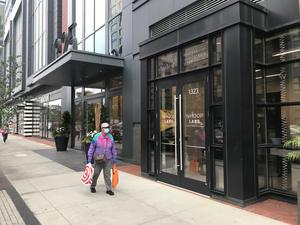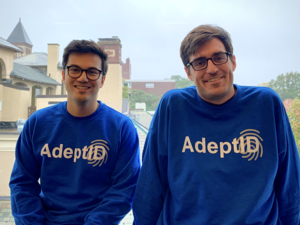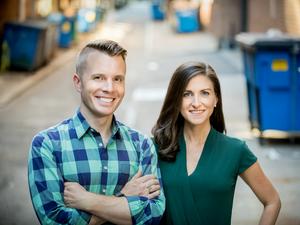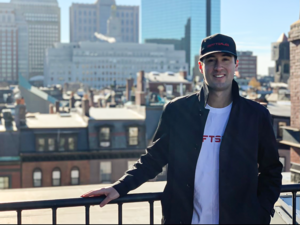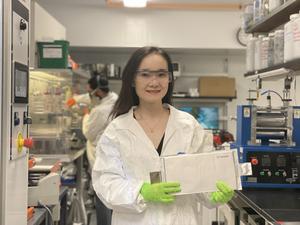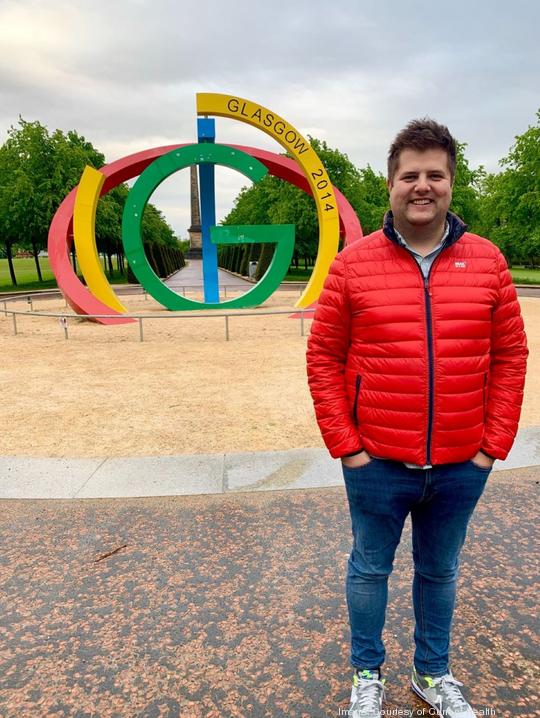
When Best Buy purchased Boston-based startup Current Health in October, the acquisition raised some eyebrows. Why was an electronics giant buying a home health care company? But to Current founder Chris McCann, the partnership made perfect sense, and was the culmination of a journey that started as a medical student in Scotland. McCann talked to BostInno about his career, the acquisition and the future of health care. This interview has been edited and condensed for clarity.
What’s your founder origin story? How did you create Current Health and what was its founding premise?
I grew up on the west coast of Scotland in a tiny little post industrial town. I went and did a degree in computer science, then went to medical school. I had started my first company when I was doing computer science, and it was a resounding failure. Then when I was in med school, my grandmother started to deteriorate pretty significantly. She had COPD (chronic obstructive pulmonary disease) and CHF (congestive heart failure) and dementia, not unlike many patients in health care, and kept getting admitted to hospital for things that could and should have been managed at home.
But I think being a medical student, you see inside some of the structural, clinical, financial reasons why delivering more health care into the home is challenging for providers to do. So we started Current Health to try and solve that. Fundamentally, our goal is to help provider organizations move more, and eventually most, health care outside of brick-and-mortar facilities into the home and help them close the technical, logistical infrastructure gaps we have around actually doing that. Fundamentally, people right now are living and experiencing different diseases, and they die from different diseases than was the case 50 years ago. And those chronic diseases like COPD, like CHF, like my grandmother had, require a different type of long-term care and management.
So tell me more about how Current Health works and what it does.
We call ourselves a care-at-home platform. And what that really means is we bring together remote patient monitoring, lots of different data from sensors in the home, and we also have our own proprietary sensor that we designed and developed ourselves for continuous vital sign monitoring. But we also are device agnostic. Effectively, any device or data sources in the home, we want to ingest data from. We also capture symptoms from the patient to understand objectively how they are from physical data, but also how do they feel? That's just as important to their clinical state.
We are bringing together all of the technology, the user experience, the clinical financial operational experience into one system. And we're also doing that in a way that maximizes access for the patient. Between a quarter and a half of the patients we care for on a daily basis, don't have home internet, don't have a smartphone. And we can talk all day about things like artificial intelligence, but fundamentally, the things that really are a barrier to care in the home are things that aren't sexy. It's things like internet access. And we spent a ton of time developing our own physical hardware and systems to allow us to do things like provide internet access to the patient in the home, providing them smartphones.
So you leave medical school to start this company in 2015. Six years later, you get acquired by Best Buy. Can you walk me through sort of how you got from point A to point B and how you grew the startup?
I think Current Health’s story is kind of highly improbable. Myself and [co-founder Stewart Whiting] both grew up in Scotland, and neither of us had any experience building companies. Neither of us had any experiences really in health care or medical devices, certainly not in American health care. We’d never touched the FDA before. We're an FDA-regulated business. So for a company from that origin to build what has become a leader in the U.S. market for care at home and work with some of the largest and most sophisticated health systems in America and across the world is ridiculously improbable.
Honestly, I think we've done that because as a whole, our team is incredibly tenacious. We’re really good at being punched in the stomach and picking ourselves up and and getting back on with it. I think building a health care business is always on a longer horizon than anything else. Bringing change within health care just takes a long time. And that makes sense. It's an industry that takes care of patients’ lives. There's nothing that's more important than that. But it means having to work through things like clinical trials, getting clearance from the FDA and other international regulators, going through pilots with health systems and convincing them that it works.
So you end up in this case where it takes a long time to suddenly become an overnight success. It's been a pretty incredible ride along the way. When we went into COVID, we were maybe 30 people with three customers. And today we are north of 40 customers. We’re 160, 170 people. Before the Best Buy acquisition, we’d raised $75 million and we honestly count some of the world's best providers of health care among our customer base. Our growth has been pretty remarkable, then obviously topped off by the acquisition. .
Let’s talk about that Best Buy acquisition. I think for a lot of outside observers, it was a surprising marriage between these two companies. When you think of Best Buy, you think of electronics and consumer goods. Why did this deal make sense for them, and for you?
I appreciate everyone sees Best Buy as a consumer business. But Current Health and Best Buy Health are B2B. We’re focused on provider organizations. Best Buy, the things that they're world class at, are things like supply chain and distribution, in-home support, access to consumer medical devices and wellness devices. Those are all things that can be a huge asset to health care provider organizations that are trying to deliver a health care service into the home, and that's what really excited me about it when they first talked me through that strategy.
And honestly everyone that I know, including me, has gone on this journey of “Best Buy?” And then our own team will go through, well, actually, these are all the areas we've seen challenges as we've tried to build this business. This is where Best Buy is really strong. Huh, this kind of makes sense. And we see that from our own customers. Our provider partners are coming in and saying "this is really exciting because this is where we've struggled as we tried to steer health care to the home. Can we do something together here?"
And that's fundamentally why we did this. We closed our Series B in April, and we weren't looking to be acquired. Current Health wasn't sold; it was bought, if you get the distinction that I'm making. And the reason for that is that I genuinely believed in the asset that Best Buy brought to the table and that together, we could build something that was greater than the sum of the parts.
Where do you see the company in five or ten years? How would you like to scale now that you’re part of Best Buy?
The nice thing is that I would give the same answer today that I would have given before the acquisition closed, which is over the next five years, we will try to help provider organizations across the UK and US deliver more and then eventually most health care into the home. And then over the next 10 years, hopefully do it on a global basis.
The whole market is still figuring out: How do we truly deliver hospital level care at home, how do we manage much sicker patients at home? Best Buy and Current Health are still figuring out how do we really make this joint offering work and deliver successfully to our partners, so that's going to take time and and take dedication and love on both sides. But I think together over the next five years, we will become the leader in this space and we will help providers deliver most health care in the home.
